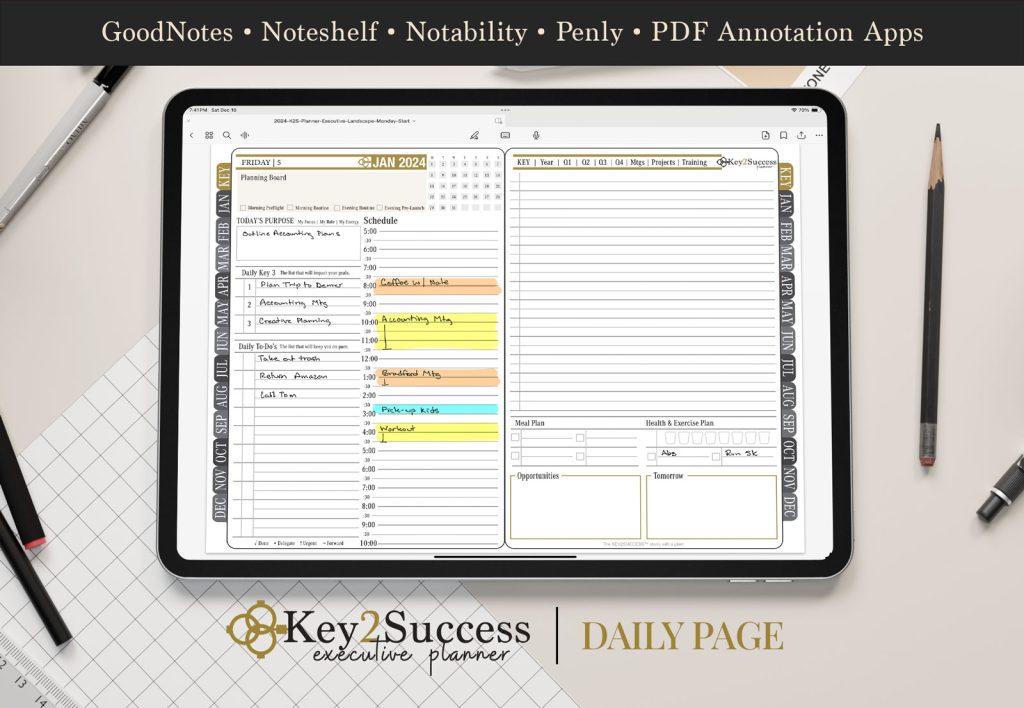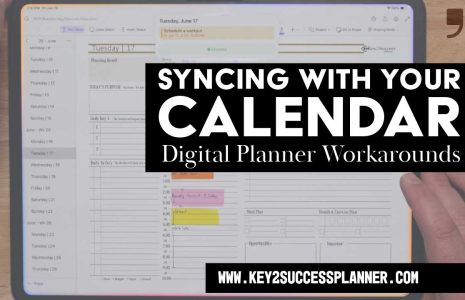The Benefits of Daily Journaling
Daily journaling has been studied extensively, and research suggests that it offers several scientific benefits for mental, emotional, and even physical well-being.
Here are some of the key scientific benefits of daily journaling:
Stress reduction: Numerous studies have shown that expressive writing, such as journaling about stressful events or emotions, can lead to reductions in stress levels. Writing about one’s thoughts and feelings helps to process emotions, gain perspective on stressful situations, and reduce the physiological and psychological effects of stress.
Improved mood: Journaling has been associated with improvements in mood and emotional well-being. By expressing emotions through writing, individuals can experience catharsis and release negative feelings, leading to a more positive outlook and increased feelings of happiness and contentment.
Enhanced cognitive function: Writing regularly can improve cognitive function, including memory, problem-solving skills, and creativity. Engaging in the practice of journaling stimulates the brain, strengthens neural pathways, and enhances overall cognitive abilities.
Better emotional regulation: Journaling can help individuals regulate their emotions more effectively. By writing about their feelings and experiences, people can gain insight into their emotional patterns, identify triggers, and develop healthier coping mechanisms for managing difficult emotions.
Improved immune function: Some research suggests that expressive writing, including journaling, may have benefits for immune function. Studies have found that regular expressive writing can lead to improvements in immune system functioning and a reduction in health problems.
Increased self-awareness: Journaling promotes self-reflection and self-awareness, allowing individuals to gain a deeper understanding of themselves, their values, and their goals. By regularly reflecting on their thoughts, feelings, and experiences, people can clarify their priorities and make more informed decisions about their lives.
Better problem-solving skills: Journaling can improve problem-solving skills by providing a structured space for brainstorming, organizing thoughts, and generating creative solutions. Writing about challenges and possible solutions can help individuals clarify their thinking and develop effective strategies for overcoming obstacles.
Reduced rumination: Rumination, or repetitive thinking about negative experiences or emotions, is associated with a range of mental health problems, including depression and anxiety. Journaling can help break the cycle of rumination by providing an outlet for expressing and processing emotions, reducing their intensity and frequency.
The scientific evidence supports the idea that daily journaling can have numerous benefits for mental, emotional, and physical health. By making journaling a regular part of your routine, you can harness these benefits and improve your overall well-being.
Visit the OneNote Journal Shop
Visit the GoodNotes Journal Shop (will also work on other PDF applications and e-ink devices)
Daily journaling offers a multitude of benefits for personal growth and well-being. It provides a dedicated space for clarity and self-reflection, aiding in understanding emotions and thoughts. Writing about emotions acts as a therapeutic outlet, reducing stress and anxiety by processing experiences. Additionally, journaling facilitates goal setting and tracking progress, enhancing accountability and commitment.
Regular writing encourages creativity, stimulates imagination, and fosters cognitive function and memory. Moreover, it aids in emotional regulation, promoting healthier coping mechanisms and problem-solving skills. Through journaling, individuals embark on a journey of self-discovery and personal growth, exploring values and aspirations.
Cultivating gratitude and mindfulness through daily reflections can lead to a more positive outlook on life. Ultimately, journaling fosters accountability, motivating individuals to stay committed to their goals and maintain progress.
Daily journaling can offer a myriad of benefits for personal growth, mental well-being, and productivity.
Visit the OneNote Journal Shop
Visit the GoodNotes Journal Shop (will also work on other PDF applications and e-ink devices)

Daily Journaling in Popular Culture
“The Artist’s Way” is a bestselling self-help book written by Julia Cameron. It’s designed to help people unleash their creativity and overcome blocks that may be inhibiting their artistic expression. Originally published in 1992, the book has become immensely popular and has had a significant influence on countless artists, writers, musicians, and other creatives.
The core concept of “The Artist’s Way” is based on the idea that everyone is inherently creative and has the potential to express themselves artistically in various ways. However, many people face internal obstacles such as self-doubt, fear, perfectionism, and negative self-talk that can hinder their creative process.
To address these obstacles, Julia Cameron introduces a twelve-week program outlined in the book, which she calls “The Artist’s Way: A Spiritual Path to Higher Creativity.” Part of her approach involves daily journaling.
Morning Pages: This practice involves writing three pages of stream-of-consciousness journaling every morning, ideally as soon as you wake up. Morning Pages are meant to clear the mind of clutter, doubts, and negativity, allowing creative ideas to flow more freely.
Throughout the book, Cameron offers various insights, exercises, and reflections to help readers overcome creative blocks, rediscover their passions, and cultivate a more fulfilling creative life. She emphasizes the importance of self-care, self-acceptance, and resilience in the face of criticism or setbacks.
“The Artist’s Way” has been praised for its practicality, accessibility, and empathetic approach to the creative process. Many readers have found it to be a transformative experience, helping them break through creative barriers, develop more confidence in their abilities, and lead more authentic and fulfilling lives as artists and creatives.
Visit the OneNote Journal Shop
Visit the GoodNotes Journal Shop (will also work on other PDF applications and e-ink devices)
How to Use a Digital Planner for Digital Journaling
Using a digital planner like Key2Success Digital Planner can be a fantastic way to harness the benefits of journaling while leveraging the convenience and flexibility of digital tools.
Here’s how you can use it to achieve various benefits:
-
Clarity and self-reflection:
- Use the daily pages to jot down your thoughts, feelings, and reflections on the day’s events.
- Take advantage of the digital format to easily organize and categorize your entries by topics or themes.
- Set aside dedicated time each day to review your entries and gain insights into your emotions and thought patterns.
-
Stress reduction:
- Utilize the planner’s features such as color-coding, stickers, and formatting options to make your journaling experience more enjoyable and stress-relieving.
- Incorporate mindfulness exercises or prompts into your daily entries to help you process stress and anxiety.
-
Goal setting and tracking:
- Use the planner’s goal-setting sections to define your short-term and long-term goals.
- Regularly update your progress on these goals and use the planner’s tracking tools to monitor your achievements.
-
Enhanced creativity:
- Take advantage of the digital format to include multimedia elements such as images, videos, or audio recordings in your entries.
- Experiment with different writing styles, fonts, and colors to stimulate your creativity and make your journaling experience more engaging.
-
Improved memory and cognitive function:
- Use the planner’s reminders and notifications feature to prompt you to journal regularly, helping to reinforce memory and cognitive function.
- Incorporate memory-enhancing techniques such as reflective writing or visualization exercises into your journaling practice.
-
Emotional regulation:
- Create custom templates or prompts tailored to specific emotions or situations to help you regulate your emotions effectively.
- Use the planner’s tagging or labeling system to categorize your entries based on emotional themes and track patterns over time.
-
Self-discovery and personal growth:
- Set aside dedicated sections or pages in the planner for self-reflection and personal growth exercises.
- Incorporate prompts or questions that encourage introspection and self-discovery into your daily journaling routine.
-
Problem-solving:
- Use the planner’s note-taking and brainstorming features to explore solutions to challenges or obstacles you encounter.
- Experiment with different problem-solving techniques such as mind mapping or free writing to generate creative solutions.
-
Gratitude and mindfulness:
- Dedicate a section of your digital planner to gratitude journaling, where you can daily note down things you’re thankful for.
- Use the planner’s reminder feature to prompt you to practice mindfulness exercises or gratitude reflections throughout the day.
-
Accountability:
- Utilize the planner’s tracking and analytics tools to monitor your journaling habits and hold yourself accountable to your daily practice.
- Set specific goals for journaling frequency and use the planner’s progress tracking features to stay on track.
By integrating these strategies into your use of the Key2Success Digital Planner, you can leverage its features to enhance your journaling experience and reap the benefits of regular reflection, goal-setting, and personal growth.
Visit the OneNote Journal Shop
Visit the GoodNotes Journal Shop (will also work on other PDF applications and e-ink devices)








